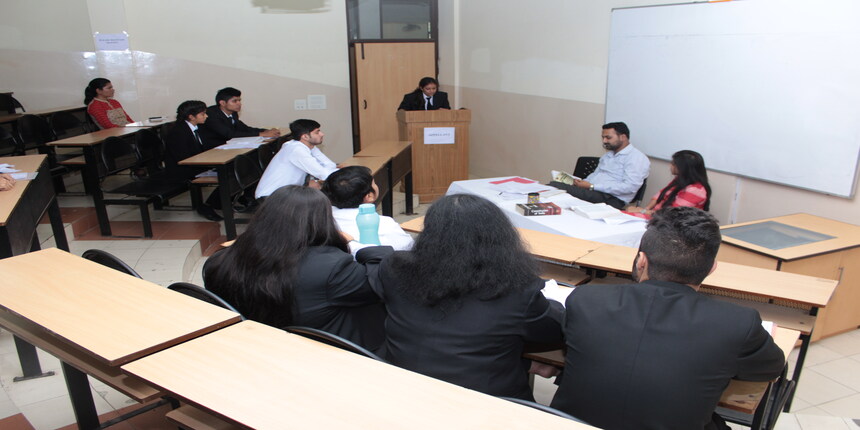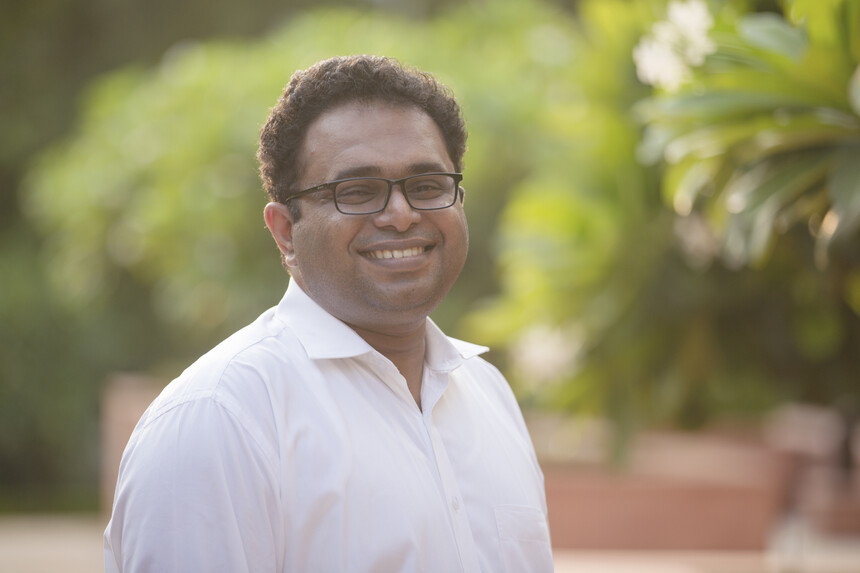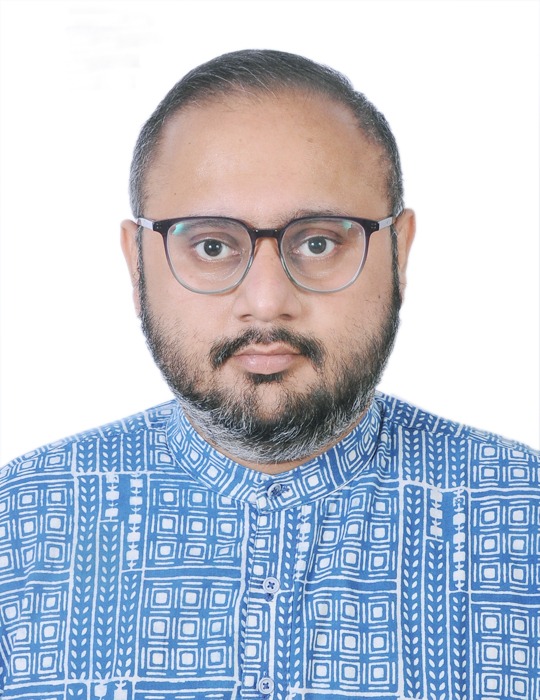How top law colleges are taking a new approach to legal aid
Sheena Sachdeva | January 15, 2024 | 02:32 PM IST | 6 mins read
NLU Delhi’s efforts have got prisoners off death row, JGLS has helped transgender persons get their documents in order.

NEW DELHI: As part of his work with Project 39A, National Law University (NLU) Delhi’s legal research and pro-bono litigation centre, Ayan Gupta read stacks of letters written by prisoners on death row – those slated for execution.
“It became clear with each letter that most people on death row were marginalised and poor, a realisation that made me very critical of the death penalty and criminal justice systems in general,” said Gupta, now in fifth year of BA-LLB. That experience in research and working on real cases helped him win the Rhodes Scholarship and get into MSc in Criminology and Criminal Justice programme at Oxford University.
Bar Council of India’s regulations for law schools require all law schools to have legal aid clinics with lists of volunteer lawyers and non-government organisations. The National Legal Services Authority (Legal Services Clinics) Regulations, 2011, provide for District Legal Services Authorities to set up legal aid clinics in educational institutions. As per data shared by the ministry of law and justice with parliament in April 2023, under the 2011 regulations, legal services clinics had been established in 1,095 educational institutions. There were over 1,660 law schools in all.
NLU Delhi’s Project 39A began as a research centre but eventually evolved into something akin to a legal aid clinic, organising pro-bono representation in death-row cases. In fact, over 65% of legal challenges to verdicts of capital punishment have come from this group.
While legal aid clinics are not equally effective everywhere, some institutions have taken the project very seriously, assigning academic credits to work done as part of them. Some have evolved into research centres; some have connected communities that needed help with volunteer lawyers; still others have focused only on raising awareness of laws and rights among marginalised communities. While college legal aid clinics were originally intended to participate in active cases, many don’t.
“Our legal aid work is not focussed on faculties or students but on marginalised communities with a provision of academic credit to students for their work in clinical legal initiatives,” said Dipika Jain, professor of law, vice-dean (research and clinical legal education) and director, Centre for Justice, Law and Society, Jindal Global Law School (JGLS).
Also read Steep bar council registration fees are driving law students away from the profession
Pro-bono work and research
“When you work with a litigation or research team, you get to know what happened in real cases. Studying laws and rights in a classroom is very different from working on a live case focussing on live realities with negotiations and litigations,” explained Gupta.
According to Anup Surendranath, a professor of law at NLU Delhi, being the executive director of Project 39A has helped his teaching. “Along with teaching, I do real life cases and research which has significant practical consequences on the ground. It has strengthened my teaching. For instance, I, along with a group of practitioners, have represented 65-70% of all death sentence cases in the Supreme Court and High Courts. We prepare the arguments with evidence and brief Supreme Court senior counsels who appear for us pro bono. Through this, I am able to make students realise how theory is applied on the ground and also its challenges. The idea is that students learn the law but also critically look at the law.” Over the years, the centre has managed to get 21 death-row prisoners completely acquitted and 39 had their sentences commuted to life imprisonment.
Also read Most top law schools have less than 50% women students: Analysis
 Anup Surendranath, professor of law, National Law University, Delhi & Executive Director Project 39A
Anup Surendranath, professor of law, National Law University, Delhi & Executive Director Project 39A
Project 39A also works with undertrial prisoners. Through a collaboration with the government of Maharashtra, it has helped file bail applications for prisoners in Pune and Nagpur prisons. “We try to ensure that the research we do comes in use in representation. For instance, we interviewed India’s death row prisoners, tracked down their families and brought out the first-of-its-kind ‘Death Penalty India Report’. For the first time, we created a report on who is on death row in India, their socio-economic profile, offences and their experience with the criminal justice system. We collaborated with each state to track down each of the families,” informed Surendranath.
The JGLS has five clinical legal education initiatives – child rights, criminal justice, environment law, law and marginalisation clinics which provide both pro bono services on different social justice issues along with courses. Jain said: “Each clinic has a full-time faculty member teaching 12-15 students through a course that includes community intervention projects.” Further, in the past two years, the students at the child rights clinic have worked on advocacy and made policy recommendations to organisations.
Students at the Criminal Justice Clinic and civil society groups have undertaken research, trained prisoner paralegals and prison staff, developed advocacy materials in different languages and submissions to parliamentary committees, and worked towards improving access to legal assistance of inmates at the Dasna Jail in Ghaziabad.
The Law and Marginalisation Clinic has assisted with targeted legal interventions (including court interventions, advice, drafting representations and counselling) on legal name and gender change on identity documents, equal opportunities in education and employment, police harassment, negligence in gender affirmative surgery and fair housing. “In the last three years, we have intervened in 74 cases of transgender and gender-diverse persons and in February 2024, the clinic will be releasing a collaborative handbook on the rights of transgender and gender-diverse persons in India,” informed Jain.
Also read ‘CLAT exam in regional languages is impractical,’ says WBNUJS Kolkata vice-chancellor
Legal aid, credits and courses
Some law schools have started awarding credits for work done in the legal aid clinics.
Raja Bagga, assistant director, Criminal Justice Clinic, JGLS, said the school has a two-semester clinical course of four credits each. Further, students can work in the summer and winter clinics and obtain up to two credits each for each clinic. Overall, students can gain 24 credits by working or doing courses at legal aid clinics. Bagga added that students can also replace their elective courses with clinical courses offered at the clinics.
“The work at legal aid clinics makes students understand the criminal justice system, how lawyering works, how to engage and communicate with clients or drafting of petitions and other important skills as a lawyer, which are usually not taught in a typical classroom. But here at the clinics, students get hands-on experience,” he added.
 Raja Bagga, Assistant Director, Criminal Justice Clinic, Jindal Global Law School
Raja Bagga, Assistant Director, Criminal Justice Clinic, Jindal Global Law School
Project 39A, too, has a three-year criminal justice fellowship programme, a journalism programme and online courses on forensics, mental health and criminal justice. “While the centre works on death row cases, we offer fellowships for law students and others to enhance their knowledge of criminal justice”, Surendranath said.
Also read ‘Global perspective’ and better jobs: Why Indians are opting for LLM abroad
Raising awareness, legal entrepreneurs
Most traditional legal aid clinics work on awareness workshops and sessions. For instance, Vidhi Mitra, the legal aid cell of Dharmashastra National Law University, has been organising sessions in schools, focussing on POCSO (Protection of Children from Sexual Offences Act) and juvenile justice. Abhinav Mishra, student convenor of Vidhi Mitra, stated: “We spread awareness on the basic understanding of acts to an audience which is not aware of the legal terms or activities. Although students learn many skills like mediation and negotiation, they don’t deal with live cases.”
Manipal Law School’s recently-opened legal aid clinics also plan to collaborate with the District Legal Services Authority and provide support and awareness amongst marginalised communities, said its director Avinash Dadhich. But the main thrust will be on creating “legal entrepreneurs”. “We are working with the Karnataka High Court and planning to recruit 10 young leaders in the state and train them in legal education,” explained Dadhich. “In small villages, where people cannot afford lawyers for trivial things like writing an application or a reply, settling some minor legal disputes, these leaders can provide services. The idea is to create legal entrepreneurs.”
Follow us for the latest education news on colleges and universities, admission, courses, exams, research, education policies, study abroad and more..
To get in touch, write to us at news@careers360.com.